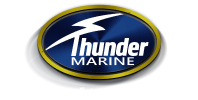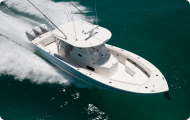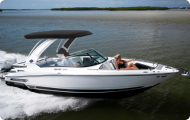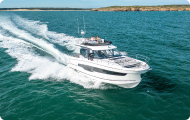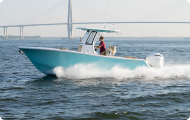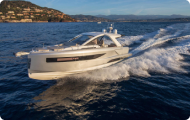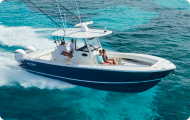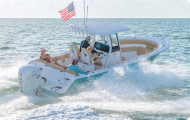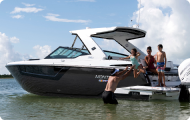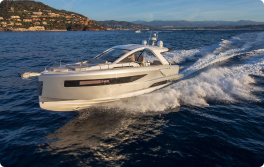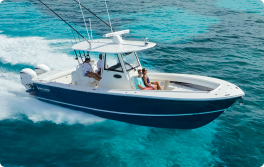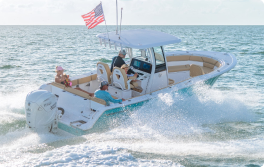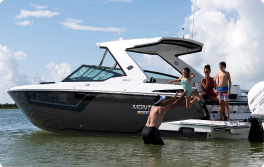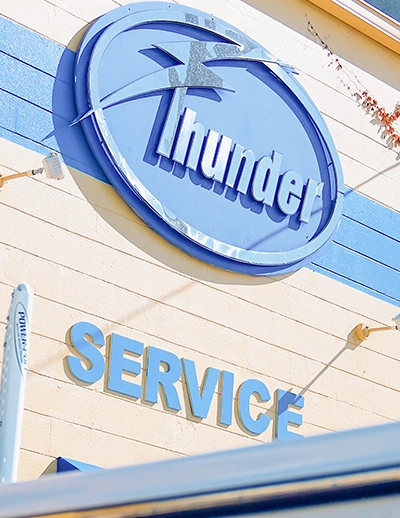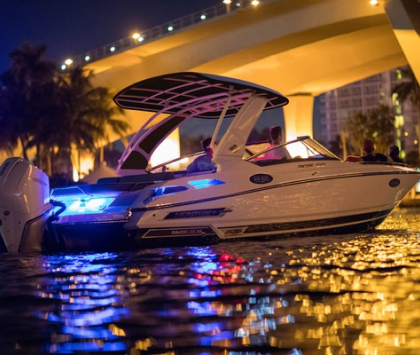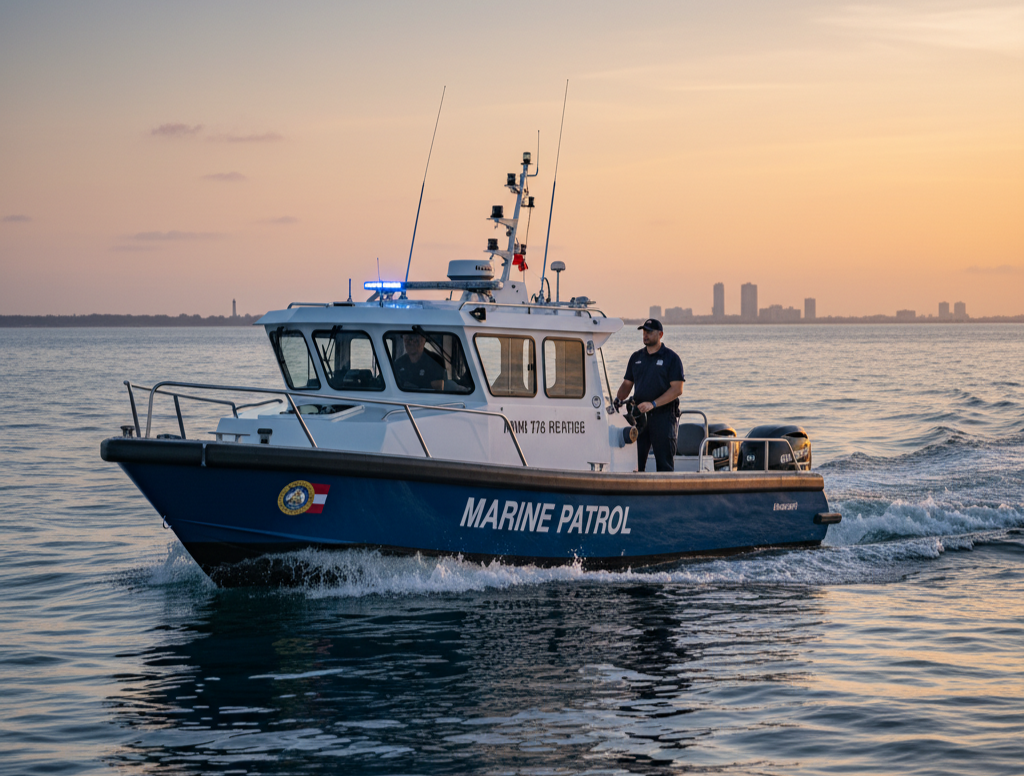Boating in Tampa Bay is one of the best ways to experience Florida’s Gulf Coast — from fishing and island hopping to relaxing on calm bay waters. But before you head out, it’s important to understand the boating laws and safety requirements that help keep everyone safe on the water.
At Thunder Marine, we believe a great boating experience starts with being informed and prepared. Whether you’re a first-time boater or a seasoned captain, here are the key Tampa Bay and Florida boating laws every boater should know.
1. Boating License and Age Requirements
In Florida, anyone born on or after January 1, 1988, who operates a boat powered by 10 horsepower or more must:
Carry a Boating Safety Education ID Card issued by the Florida Fish and Wildlife Conservation Commission (FWC).
Carry a photo ID while operating the boat.
2. Registration and Decals
All motorized boats — including personal watercraft — must be registered with the Florida Department of Highway Safety and Motor Vehicles (FLHSMV).
Registration guidelines:
The registration number must be displayed on both sides of the bow in bold, block letters.
The validation decal must be placed within 6 inches of the registration number.
You must carry the registration certificate on board at all times.
3. Life Jacket Requirements
Florida law requires that every person on board have access to a U.S. Coast Guard–approved life jacket.
Children under 6 must wear a life jacket at all times while on a boat under 26 feet long.
Each passenger must have a properly fitted PFD (personal flotation device).
Boats over 16 feet must also carry a Type IV throwable flotation device (like a cushion or ring).
4. Speed Limits and No-Wake Zones
Tampa Bay is full of no-wake and slow-speed zones designed to protect marine life, shorelines, and other boaters.
Key reminders:
Always reduce speed near docks, marinas, bridges, and swim areas.
Observe manatee protection zones, especially in warm months when they migrate through the bay.
If you see a “Slow Speed, Minimum Wake” sign, your boat should be fully settled in the water with little or no wake behind it.
5. Boating Under the Influence (BUI)
Operating a boat under the influence of alcohol or drugs is illegal in Florida and treated just like a DUI.
The legal blood alcohol limit for operators is 0.08%.
Penalties include fines, suspension of boating privileges, and even jail time for serious offenses.
Officers can stop and board your boat to conduct a safety inspection or sobriety test at any time.
6. Navigation Lights and Equipment
If you plan to boat between sunset and sunrise, your boat must have the proper navigation lights installed and functioning.
Required lighting includes:
Red and green sidelights (port and starboard).
A white stern light and masthead light are visible from all directions.
Other required equipment for most boats includes:
Sound-producing device (horn or whistle).
Fire extinguisher (for boats with enclosed fuel systems).
Visual distress signals (for boats operating in coastal waters).
7. Anchoring and Mooring Rules
Anchoring in Tampa Bay is allowed in most areas, but there are rules to protect navigation and the environment.
Avoid anchoring in channels or near marked navigation routes.
Respect seagrass beds and protected wildlife zones — damaging them can lead to fines.
Never tie up to channel markers, buoys, or private docks without permission.
8. Environmental Protection Laws
Florida takes environmental conservation seriously. Boaters must take steps to protect Tampa Bay’s ecosystems:
No dumping: It’s illegal to discharge sewage, oil, or trash into state waters.
Use pump-out stations for marine waste.
Avoid spilling fuel — always refuel slowly and use absorbent pads when needed.
9. Reporting Accidents and Emergencies
If your boat is involved in an accident that causes injury, death, or property damage over $2,000, you must report it to the Florida Fish and Wildlife Conservation Commission (FWC) or local law enforcement as soon as possible.
Always keep:
A charged cell phone or VHF radio on board.
A list of emergency contacts and towing services.
Boating Safely in Tampa Bay
Boating in Tampa Bay is all about enjoying freedom on the water — safely and responsibly. By following these key boating laws, you protect yourself, your passengers, and Florida’s beautiful waterways.
At Thunder Marine, we’re proud to serve the Tampa Bay boating community with top-quality boats, service, and support. Whether you’re looking for a Sportsman center console, a Regulator offshore model, a Jeanneau cruiser, or a Monterey bay boat, we’ll help you find the perfect boat for safe, confident boating.
Call us today at (727) 381-4444 or visit Thunder Marine to explore our latest models and get expert advice on boating safely in Florida.
It’s not just a boat—it’s a lifestyle!
